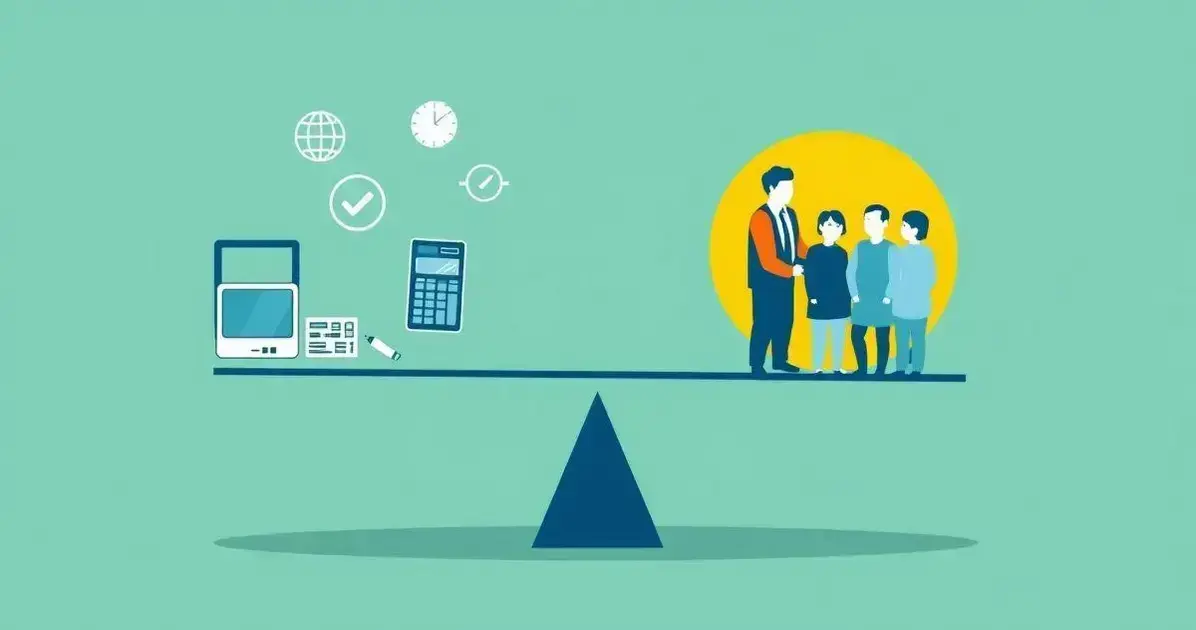Soft Skills Employers Look For are essential to creating strong workplace relationships and fostering a positive, collaborative environment. Unlike hard skills, which focus on technical expertise, these interpersonal qualities can make or break your success in a professional setting.
In today’s fast-paced work environment, employers increasingly seek candidates who possess soft skills like communication, adaptability, and problem-solving. These abilities are what enable you to work well within a team and contribute to the overall success of a company.
Want to learn which soft skills can make you stand out? Keep reading to discover how you can develop and showcase them in your career.
What Are Soft Skills?
Soft skills are personal attributes that enable someone to interact effectively and harmoniously with others. Unlike hard skills, which are specific knowledge sets like coding or accounting, soft skills are more about how you communicate and work with your team. They include skills like communication, teamwork, adaptability, and problem-solving.
In the workplace, soft skills play a crucial role in how employees collaborate and succeed together. Employers highly value these skills because they help build a positive environment. Workers with strong soft skills are often better equipped to handle conflicts, share ideas, and support one another in achieving common goals.
Soft skills are essential for anyone looking to advance their career. They not only improve individual performance but also enhance team dynamics. By developing these skills, you can unlock your full potential and become a more attractive candidate for employers who are searching for individuals who can contribute to their organizational culture.
Importance of Soft Skills in the Workplace
The importance of soft skills in the workplace cannot be overstated. These skills help create a friendly and cooperative environment where everyone can thrive. When employees can communicate well and work together, it boosts morale and allows teams to achieve their goals more effectively.
Soft skills also play a key role in problem-solving. When challenges arise, employees with strong soft skills can navigate situations with ease. They can think critically and work with others to find solutions, which leads to a more productive workplace overall. This ability to adapt and find common ground is what makes teams successful.
Moreover, soft skills can enhance leadership qualities. Good leaders inspire and encourage their teams by utilizing their soft skills. They know how to listen, motivate, and support their members. By fostering these essential skills, businesses create a positive workplace culture, allowing employees to feel valued and empowered.
Top Soft Skills Employers Look For
Top soft skills employers seek include effective communication, teamwork, and flexibility. Employers want team members who can clearly express their ideas and listen to others. Good communication helps prevent misunderstandings and builds strong working relationships.
Another important soft skill is teamwork. Employers look for individuals who can work well with others and contribute to a positive group atmosphere. Being able to collaborate and support your colleagues leads to better outcomes and increases productivity.
Lastly, flexibility is a key soft skill that employers value. The ability to adapt to changing situations and handle unexpected challenges is essential in today’s fast-paced work environment. Employees who are flexible can learn quickly, take on new tasks, and thrive in various conditions.
How to Develop Soft Skills

Developing soft skills starts with self-awareness. Take time to reflect on your strengths and areas where you can improve. Knowing what skills you want to work on, such as communication or teamwork, is the first step to becoming more effective in the workplace.
Practice is key to improving soft skills. Engage in activities that let you use these skills in real situations. For example, join group projects or volunteer for leadership roles. These experiences allow you to learn from others and enhance your skills over time.
Lastly, ask for feedback from trusted friends or coworkers. They can provide valuable insights on how you communicate and collaborate. Be open to constructive criticism and use it to grow. By continuously seeking feedback and practicing, you can develop the soft skills needed to thrive in your career.
Examples of Soft Skills in Action
Examples of soft skills in action can be seen every day in the workplace. For instance, imagine a team working on a project. Each member listens carefully to what others say, sharing their ideas while respecting different opinions. This kind of effective communication fosters a positive atmosphere and leads to better collaboration.
Another example is someone who remains calm under pressure. Picture an employee facing a tight deadline. Instead of panicking, they organize their tasks, ask for help when needed, and adapt to changes. This flexibility not only helps them complete their work but also encourages their teammates to stay focused.
Lastly, problem-solving is a key soft skill that shines in the workplace. When a challenge arises, a resourceful employee might gather the team to brainstorm solutions. They encourage everyone to share their thoughts, helping to find a creative way forward. This teamwork and critical thinking create successful outcomes in the face of obstacles.
Assessing Your Soft Skills
Assessing your soft skills is an important step toward personal and professional growth. Start by reflecting on your interactions with others. Think about how you handle communication, teamwork, and stress. Asking yourself questions like, “Do I listen well?” or “Can I adjust to changes easily?” can provide insight into your soft skills.
You can also use feedback from others to assess your soft skills. Reach out to friends, family, or colleagues and ask for their honest opinions. They can help you identify strengths you might not realize you have, as well as areas for improvement. This feedback is valuable in understanding how others perceive your skills.
Finally, consider taking online assessments or quizzes designed to evaluate soft skills. Many resources are available that can give you a clearer picture of your abilities. By taking these steps, you can create an action plan to develop your soft skills further and unlock your career potential.
Showcasing Soft Skills on Your Resume
Showcasing soft skills on your resume is essential to stand out to potential employers. Start by including specific soft skills in your summary or objective statement. For example, you could mention your strong communication skills or ability to work well in teams. This brief introduction sets the stage for the rest of your resume.
Next, provide examples of how you’ve used these skills in your work experience. Instead of just listing soft skills, describe situations where you demonstrated them. For instance, you might say, “Collaborated with a team to complete a project ahead of schedule, improving overall productivity.” This helps employers see how your skills can benefit their organization.
Finally, remember to tailor your resume for each job application. Review the job description and highlight the soft skills mentioned. Aligning your experience with the employer’s needs shows that you have the qualities they are looking for. By doing this, you can effectively showcase your soft skills and make a lasting impression.
Soft Skills vs. Hard Skills

Soft skills vs. hard skills is an important distinction in today’s job market. Hard skills are specific, teachable abilities like programming, accounting, or data analysis. These skills can be measured and usually learned through education or training. Employers often look for hard skills to fill technical roles that require specific knowledge.
On the other hand, soft skills relate to how you interact with others and approach your work. These skills include communication, teamwork, problem-solving, and adaptability. They are more difficult to measure but are equally important. Employers value soft skills because they contribute to a positive work environment and better team collaboration.
Understanding the difference between these skill types is crucial for career success. While hard skills get you in the door, soft skills often help you keep your job and advance in your career. You should aim to develop both skill sets to be a well-rounded candidate that meets employer expectations.
Soft skills are essential for today’s workforce, helping employees interact and work together effectively. These skills, which include things like communication, teamwork, and problem-solving, are just as vital as technical abilities. Employers highly value candidates who possess strong soft skills because they contribute to a positive work environment and can lead to better team dynamics.
To improve your soft skills, start by being more aware of your interactions with others. Pay attention to how you communicate and work in groups. Are you a good listener? Do you collaborate well? Identifying your strengths and weaknesses in these areas will help you focus on what you need to improve.
Additionally, practice makes perfect! Engage in group activities, volunteer, or take part in team projects where you can hone your soft skills. By consistently putting yourself in situations that require these skills, you will grow more confident and effective in your interactions, making you a more appealing candidate to employers.